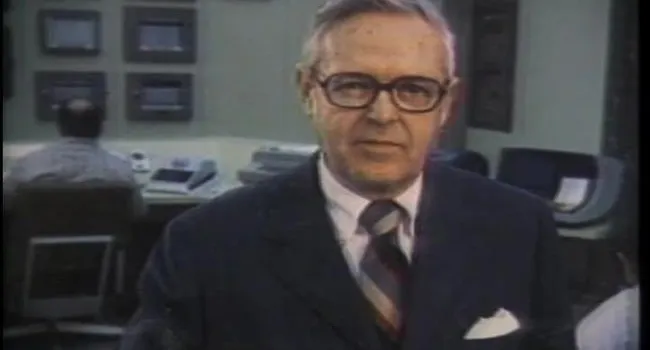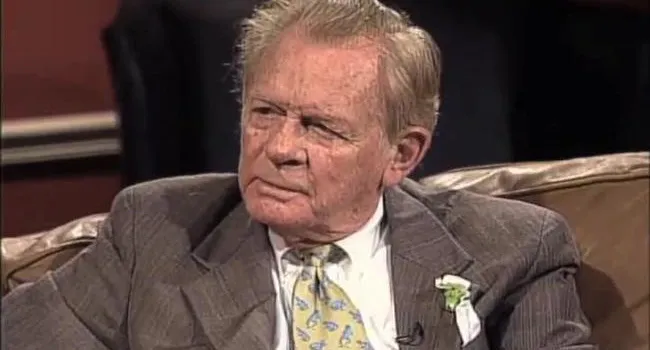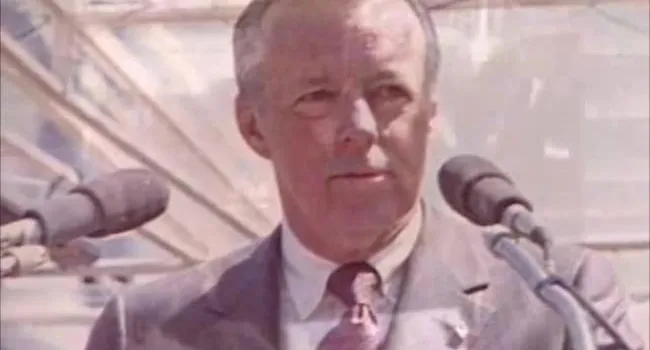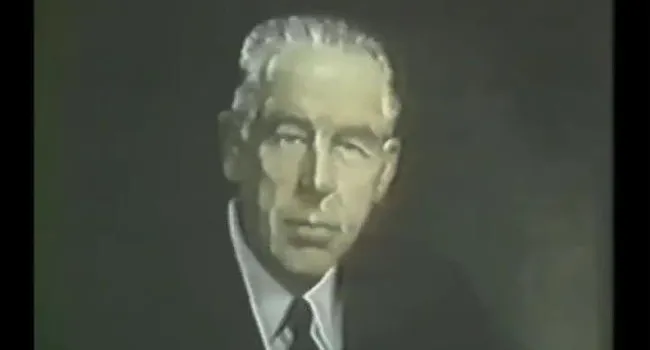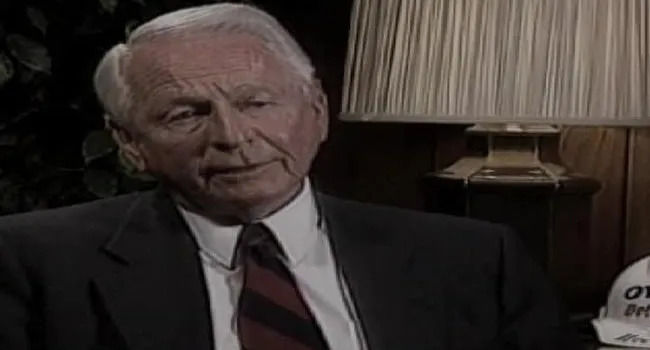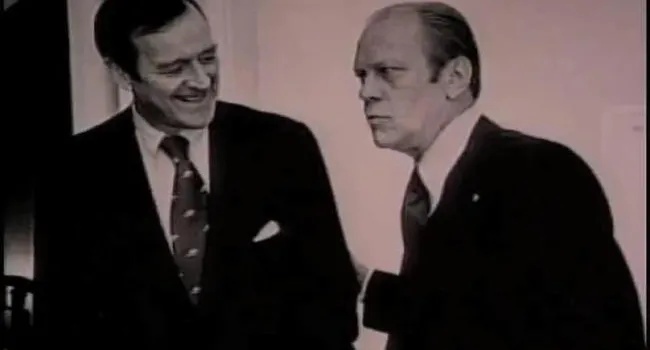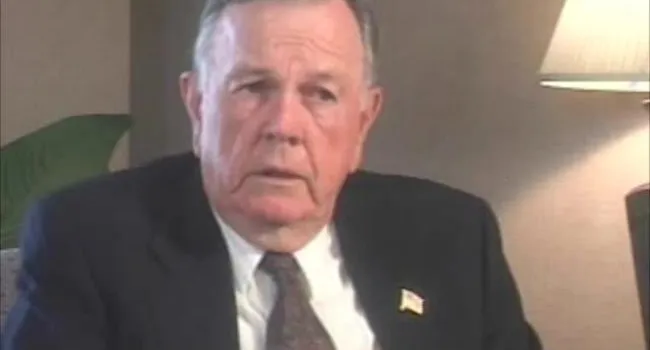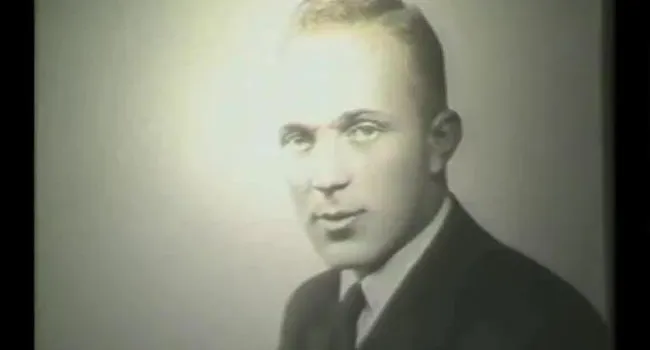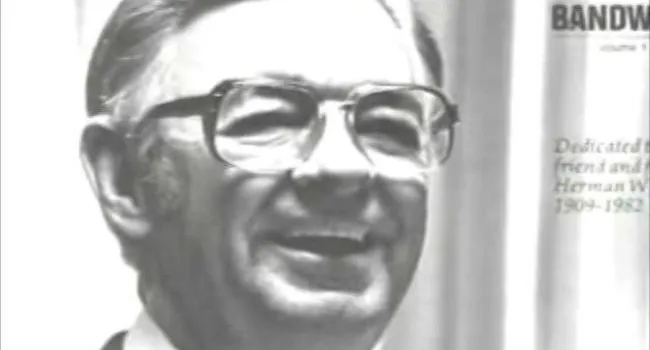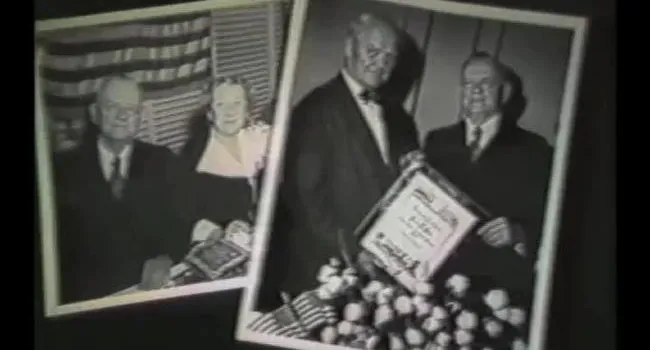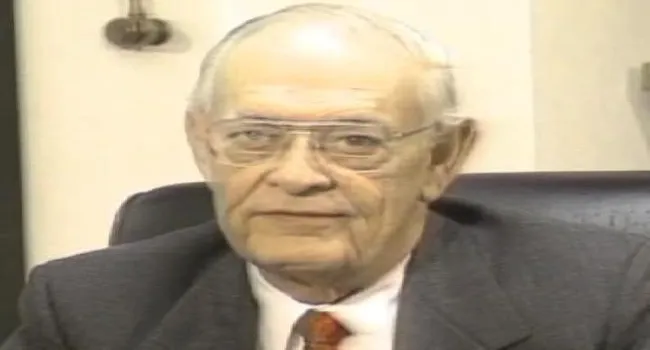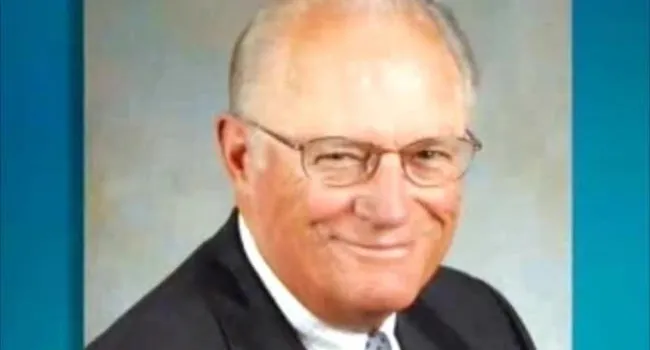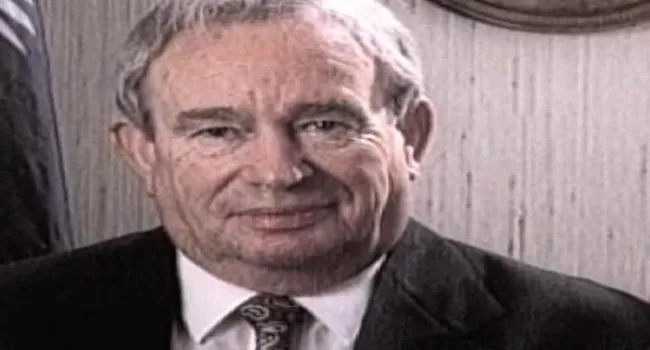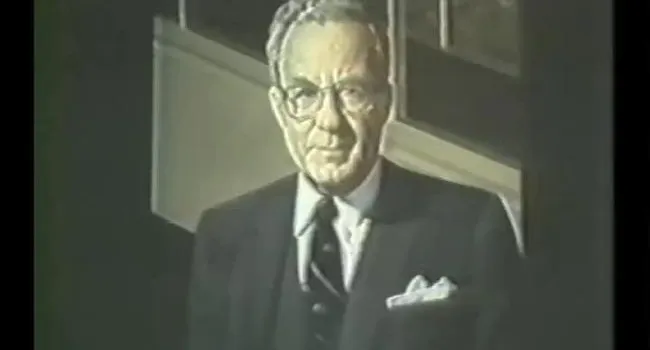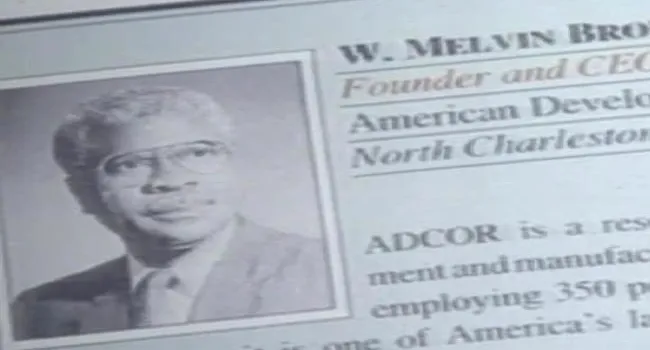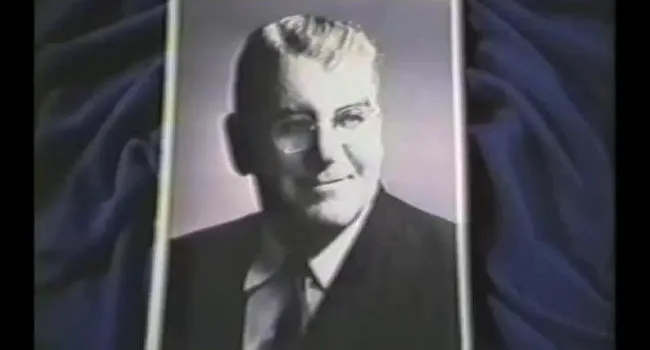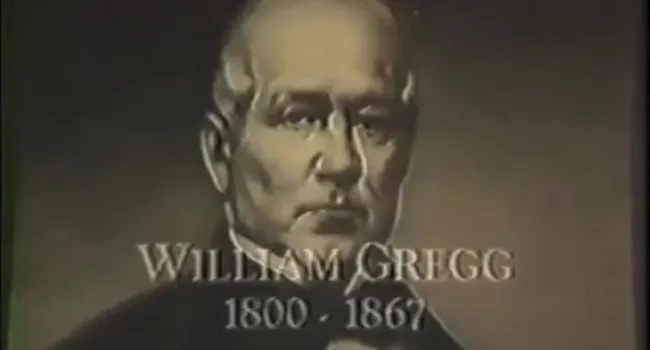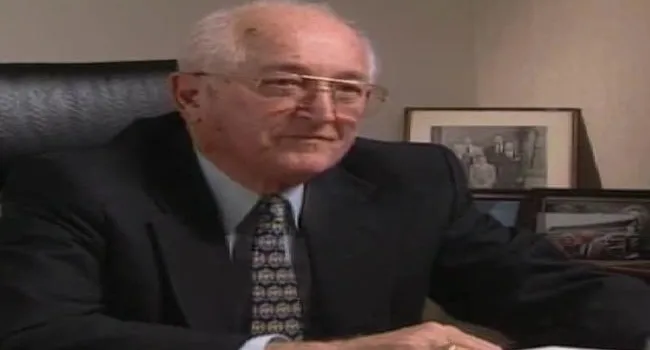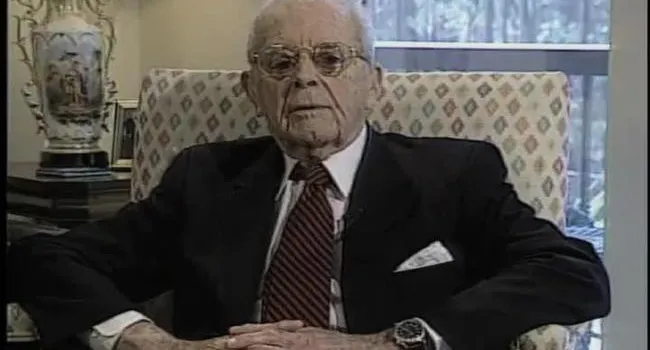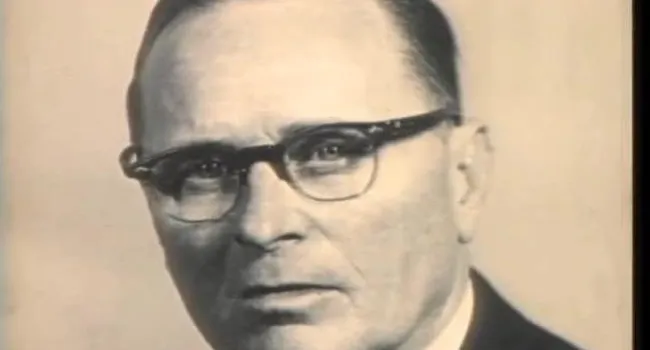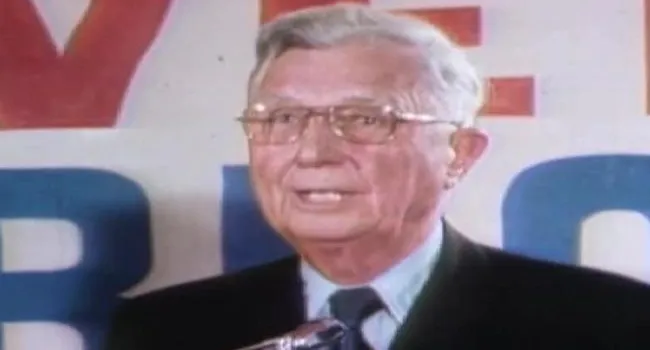A profile of Robert Spence Davis.
Robert S. Davis (1915–1993)
Robert S. Davis, who retired as chairman of The R. L. Bryan Company, one of South Carolina's oldest businesses, made a side career out of public service.
Davis not only expanded R. L. Bryan into a multimillion-dollar, two-state operation, he was a key force in the state's adjustment to wrenching sociological changes. Repeatedly, he was called on to lead in a variety of initiatives crucial to the state.
Davis combined his business acumen with a marked concern for the welfare of all his fellow citizens and an enlightened sense of public duty.
Although he never attended college, Davis had a passion for education and helped South Carolina's public schools prepare for integration. He also served as chairman of the South Carolina Public Service Authority, or Santee Cooper, for 16 years.
Robert Spence Davis was born April 22, 1915, in Lexington, the fourth of six children of Albert Wilson and Maude Spence Davis. His father, a streetcar mechanic for the Broad River Power Company, moved to Columbia when Davis was 12 and the Depression was on the verge of ravaging South Carolina's economy.
As a boy, Bob Davis had a variety of jobs. He delivered The Columbia Record. He worked in an ice cream parlor, was a retail clothing clerk, and sold drinks and candy in the Imperial Theater on Main Street.
At Columbia High School, Davis was elected senior class president and played football and basketball. But he struggled in the classroom. He had to repeat an English exam before he and his date, Hazel Taylor, were allowed to lead the grand march at the senior prom. She helped him study.
After he graduated, his father told him, "Son, I'm sorry I can't send you to college." Young Davis replied, "I really don't want to go. I want to get a job and get married." Thus a courtship that began when Hazel was 15 led to their marriage May 29, 1937.
Davis started work in the printing department of R. L. Bryan on June 17, 1935. He became manager of the printing department in the early 1940s and was elected to the company's board of directors in 1948. He succeeded the late Arthur St. Julian Simons as president in 1966 and was elected chairman of the board after Simons' death in 1973. The R. L. Bryan Company prospered under Davis' leadership. It opened offices in three other South Carolina cities and in Atlanta. It moved from its Sumter and Senate streets plant into a 158,000-square-foot facility on Greystone Boulevard in 1968.
Part of Davis' success stemmed from his knowledge of himself. He recognized his own strengths and weaknesses. He surrounded himself with good people who had strengths he lacked. He was an excellent speaker but considered himself a poor speller. So he had others write for him.
Davis led by example. An excellent communicator and great mediator, he had the unusual ability to bring opposing sides together and help them find common ground.
Former Governor Robert E. McNair maintained that Davis' unique sense of values helped create a climate of understanding that greatly aided the process of peaceful educational change in South Carolina.
In 1970, President Nixon appointed Davis chairman of the South Carolina Education Advisory Committee to help with school desegregation. The committee interceded for school districts in negotiating with federal authorities. Davis met with business leaders throughout the state to forge a peaceful transition.
Davis called his contribution during that troubled period his most satisfying public service.
He served for 20 years as a member of the Richland County School District One Board of Education, and for many years, he was a director of the Educational Resources Foundation. He was also appointed to a Joint Legislative Committee to study public education problems in South Carolina. In March 1978, he was recognized for his service by the Palmetto Teachers Association.
Davis also served as vice president of the South Carolina School Boards Association and as a trustee of the Southern Association of Colleges and Schools.
Although he lacked a college education, Davis became a strong supporter of the University of South Carolina. He served as an adjunct professor in USC's College of Business Administration, received an honorary life membership in the Alumni Association, and was a director of the University's Educational Foundation. USC awarded him an honorary doctoral degree.
Davis was appointed to the Santee Cooper board in 1969 and became chairman several months later. Governor McNair picked Davis to try to settle long-simmering controversies between public and investor-owned power utilities.
Davis' negotiations led to legislation establishing territories for the companies and allowing private and public utilities to share equipment and transmission lines. During Davis' leadership, Santee Cooper's revenues increased from $17.3 million to $430 million.
An active Baptist layman, Davis received the State Baptist Convention's award for "significant leadership and contribution in the area of applied Christianity." For many years, he held leadership positions at Columbia's First Baptist Church, and when he retired and moved to Lake Murray, he and his wife helped found the Chapin Baptist Church.
Bob and Hazel Davis were the parents of two daughters, Patricia Sanders Nates and Barbara Davis McCormick. Davis died August 10, 1993.
He was inducted into the South Carolina Business Hall of Fame in 1992.
© 1999 South Carolina Business Hall of Fame

